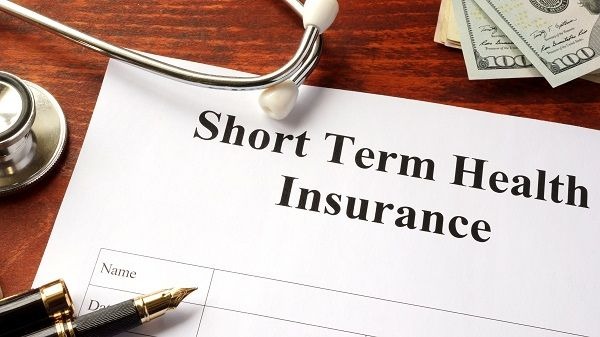I’m on a mission to help you understand short-term health insurance. I’ll cover its good points and downsides. You’ll learn about its benefits, like being affordable and filling gaps in coverage. But, I’ll also talk about its limits, like restricted networks and no coverage for pre-existing conditions.
If you’re looking for a cheaper health insurance option or temporary coverage, it’s crucial to know the pros and cons. By the end of this article, you’ll have all the info you need. You’ll know if short-term health insurance is right for you.

Understanding Short-Term Health Insurance
Short-term health insurance is a *temporary coverage* solution for those in unexpected gaps or transitions. It’s an *affordable coverage* option, making it a *cost-effective option* for temporary protection.
Also Read: Demystifying Health Insurance Networks: A Comprehensive Guide
Temporary Coverage for Unexpected Gaps
Life can surprise us with unexpected changes, like job loss or family moves. Short-term health insurance fills the gap until a better plan is found. It offers temporary protection, keeping essential healthcare coverage during uncertain times.
Affordable Alternative to Traditional Plans
Short-term plans are more *affordable coverage* than traditional health insurance. They’re a *cost-effective option* for short-term needs, like between jobs or during life changes. They provide a valuable safety net without the high costs of long-term policies.

Benefits and Drawbacks of Short-Term Health Insurance
Short-term health insurance has its good and bad sides. It’s a cheaper option than regular insurance, great for temporary needs. It helps fill gaps in coverage, offering some protection when you’re not fully insured.
But, these plans have big downsides. They often don’t cover important things like preventive care, maternity care, or mental health treatment. They also don’t cover pre-existing conditions, which is a big problem for people with ongoing health issues. Plus, they have restrictive provider networks, making it hard to get care and leading to higher costs for emergency care or specialist visits.
Thinking about benefits and drawbacks of short-term health insurance is key. It’s important to match your health needs and budget with the right plan. While short-term plans can be helpful in some cases, they might not meet your long-term health and financial needs. Knowing the pros and cons helps decide if a short-term policy is right for you.
Navigating Limited Benefits and Restrictions
Short-term health insurance plans have big downsides. They often don’t cover pre-existing conditions. This means any health issues you had before joining might not be covered. This is a big worry for those who need ongoing medical care.
Also, these plans have restrictive provider networks. This means you can only see certain doctors and go to specific hospitals. If you need special care or prefer certain doctors, this can be tough. It’s important to know these limits when looking at short-term health insurance.
Pre-Existing Condition Exclusions
Short-term health insurance plans don’t cover pre-existing conditions. This is a big problem for those with ongoing health issues. You might have to pay for all treatments related to these conditions. This could make the plan not worth it financially.
Also Read: The Difference Between Term Life and Whole Life Insurance
Restrictive Provider Networks
Another issue with short-term health insurance is the restrictive provider networks. You might only be able to see a few doctors and hospitals. This can be hard if you need special care or prefer certain doctors. It’s especially tough for those who have built relationships with their healthcare providers.
Conclusion
Short-term health insurance can be a good choice for temporary needs. It’s cheaper than regular plans but has its downsides. You need to think carefully about the pros and cons before deciding.
It’s a budget-friendly way to cover gaps in your health insurance. But, it has big limits. These include fewer benefits, no coverage for pre-existing conditions, and a small network of doctors.
Knowing the good and bad points of short-term insurance helps you decide if it’s right for you. It might be good for those with a health insurance gap or looking for a cheap option during big changes. But, make sure the policy’s limits fit your health needs.
Choosing short-term insurance should be a thoughtful decision. Consider your health needs, budget, and how long you need coverage. This way, you can get the right protection when you need it most.
